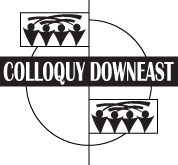Restorative Justice and Restorative Communities
| |||||||
Restorative Justice is deeply indebted to the many indigenous cultures –Native American to Native South Pacific Islanders to Southern African– from which it has taken inspiration. It speaks from a deeply humanist, communal and healing point of view for which we can find parallels in alternative movements and voices even within western cultural history.
This four-part colloquy aims to offer
– an overview of what Restorative Practices (RP) is and how it is manifest in day to day living, with each other, inclusive and heard in community;
– an overview of Restorative Justice (RJ) by looking at how a restorative response to crime, harm or infractions is a viable alternative to our punitive, retributive, exclusionary and failed incarceration system; and
– an overview of Transformative Justice (TJ) which acknowledges that crime rarely occurs in a vacuum but is connected to harmful and unhealthy relationships, social structures or institutional policies. As TJ contends that it is these very conditions which must be worked on to stop the cycle of societal harm that leads to individual harm, we’ll explore what community based justice response might look like.
Leslie Ross –Having inherited from her familial elders and early teachers strong visions of the possibility of a just world and just communities, Leslie began Restorative Justice specific work when she moved to Maine. She has been a Board member of Downeast Restorative Justice since 2017 and is currently its Program and Case Coordinator. She actively participates in the larger Maine Restorative Justice Coalition. Leslie parcels the rest of her time among playing and composing music, working and playing as a sound artist, inventing and constructing original instruments, building bassoons and teaching bassoon, operating her local small water system; gardening, knitting, and tending to chickens, sheep and canaries; and hosting residency, sound installation and performance programs at the Cannery @ South Penobscot. She loves animated discussions and gentle conversations. She tinkers and builds and collaborates any chance she gets.
Syllabus/Reading
Session 1. Being in Community: Restorative Practices as a way of being and living. A fundamental premise of Restorative Practices (RP) is that we live in community, an idea [or ‘truth’?] famously articulated by Desmond Tutu in his explanation of Ubuntu: “My humanity is caught up and is inextricably bound up in yours.” We’ll look at Circle Practice, a traditional Native American practice of communication and healing, aspects of which have been brought into restorative practices for community building, most notably within schools. We’ll explore the concept of “doing with,” another core value held by RP.
Participants are invited to reflect on these practices and values, offer where in our [THEIR?] lives and communities they are or can be made more relevant, and where within our own personal traditions we might find these same values.
https://www.iirp.edu/restorative-practices/explained
Session 2. Restorative Justice (RJ), often used overarchingly, is here defined as applying Restorative Practice principles to situations where harm, wrongdoing, or crime has occurred. Its concerns are with the impacts on those who have been affected and with how they have been affected by a harmful act, along with the broken relationships that have resulted from these acts. RJ is not concerned [at all?] with what law or norms were broken but strives to answer the question of what can be done to make things as right as possible while looking for pathways to mend damaged community relationships. Along with the core values of RP, it also holds the value of voluntariness in all processes.
We’ll discuss what might need to shift in our personal or cultural mindset for us to move away from the concept of punishment. Can we see responsibility and accountability through a different lens than that of blame, shame or guilt?
Session 3. Transformative Justice (TJ) recognizes that usually harm does not occur in a vacuum and that it may occur, in part, as a result of unhealthy relationships and social systems. As a community, how can we truly heal by solely repairing harm done in a particular incident when we see that the person who caused harm themselves comes from a history of trauma. TJ sees this as an obligation to build new or better relationships, including at the level of social structures and institutional policies.
TJ also seeks to build a way to respond to violence and harm within our own communities, without creating more violence and harm as caused by our current punitive systems.
What would community-based justice look like? What would community accountability look like? What harm can we address on the micro level? Where is our obligation for addressing harm on the macro level?
https://transformharm.org/tj_resource/transformative-justice-a-brief-description/
Session 4. TJ Continued: Building Community. Strong communities are most often defined by groups sharing common characteristics and interests and seeing themselves as distinct in some way. Further thoughts on TJ and earlier discussions and reflections. What would it look like to have strong equitable and inclusive communities where differences are honored, and what could be some pathways towards building this?
Is there tension between building communities and fully honoring differences? What are some communication and conflict resolution skills we can collectively strengthen?
▼ Registration
Registration
Bookings are now closed (or the colloquy has been cancelled)
We aren't currently accepting bookings for Restorative Justice and Restorative Communities.
If you are trying to pay for a colloquy that you've already attended or have questions about refunds, please contact our Treasurer to work out the details.
▲ Hide...
